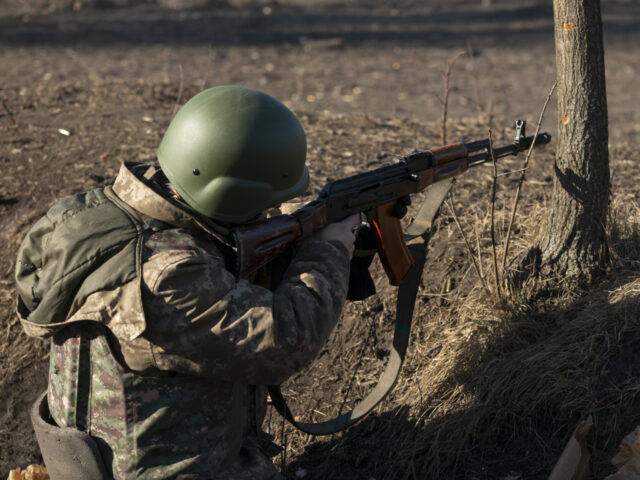News agency Reuters has posted an interview with a soldier nicknamed “Adolf” who serves in the Ukrainian “SS” brigade.
A Reuters interview with a Ukrainian soldier nicknamed “Adolf” has drawn the interest of social media users, with a number of people speculating that the battlefield pseudonym could be a reference to the infamous leader of Nazi Germany.
Such speculation has only been fueled by the rather unfortunate name of the soldier’s “Spartan Storm” brigade, which many have pointed out would be abbreviated to SS, which is reminiscent of Hitler’s Schutzstaffel (SS) paramilitary organisation that was tasked with carrying out the so-called “final solution” of exterminating Jewish people in concentration camps.
Posted early on April 21 — only a few hours after Adolf Hitler’s birthday — the interview discussed the training of newly recruited Ukrainian soldiers who are being readied for a planned counteroffensive against the invading Russian army.
Central to the agency’s report is a serviceman with the nom-de-guerre, or war nickname, “Adolf”, who detailed exactly what was involved in preparing the soldiers to fight off forces sent by Moscow.
“Training is very complex, it includes first aid, tactics, firing drills,” Adolf remarked. “We understand that in order to win, we must be strong, know how to fire and provide first aid in order to avoid losses which we had in the past.”
Social media pundits, however, largely ignored the finer details of the report, instead querying the solider’s highly questionable alias, as well as the name of his brigade.
“‘Adolf’ from the SS Brigade,” a number of netizens remarked, with many others drawing comparisons between elements depicted in the Reuters report and the Nazi regime.
Others mocked the similarities, with some suggesting that the name “Adolf” was actually a reference to other people.
“I think it’s absolutely shameful that people hear this brave soldiers nickname and automatically assume he is paying tribute to Adolf Hitler (sic),” one individual quipped. “Our sources tell us he is actually doing an homage to Adolf Eichmann (sic).”
While no doubt an embarrassing turn of events for Reuters, the report is likely to fuel more attention to the Ukraine military’s contested links with Nazism and Neo-Nazism.
Although the prevalence and nature of the ideology are now hotly debated, what remains clear is that numerous elements of the country’s military — such as the Azov Batallion — have at least in the past had intimate links with Nazism.
Such links have been used by Vladimir Putin’s Russia as casus belli for the current conflict, with the Kremlin often referring to the ongoing conflict as a programme of “denazification” for the country.
Things are only made more complicated by the associations Nazism has in Russia and some of the regions it used to occupy, with the ideology often being associated with general anti-Russian sentiment rather than any specific elements of antisemitism or hardline authoritarianism. Others have also noted that current Ukrainian President Volodymyr Zelensky is of Jewish heritage and had relatives die during the Holocaust.

COMMENTS
Please let us know if you're having issues with commenting.